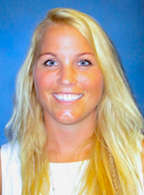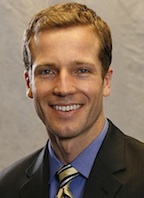Duty Hours in the Learning and Working Environment and Fatigue
Duty Hours
Duty hours are defined as all clinical and academic activities related to the residency program. Duty hours do not include reading and preparation time spent away from the duty site. While on call from home, only the hours spent in the hospital after being called in to provide care, count toward the 80-hour limit. Specifically, duty hours include all clinical and academic activities related to residency training:
- Patient care, both inpatient and outpatient;
- Administrative duties related to patient care;
- Patient care, both inpatient and outpatient;
- Administrative duties related to patient care;
- The provision for transfer of patient care;
- Scheduled academic activities such as conferences and research activities required by the respective RRC; and
- Time spent doing research if research is required by the respective RRC.
Duty hours are limited to an average of 80 hours per week, over a four-week period, inclusive of all in-house call activities and all moonlighting. Residents are provided at least 1 day in 7 free from all educational and clinical responsibilities and free from at-home call, averaged over a 4-week period. One day is defined as one continuous 24-hour period free from all clinical, educational, and administrative activities. (Studying and preparation time for conferences do not count as duty hours). It is essential for patient safety and resident education that effective transitions in care occur. Residents may be allowed to remain on site following their maximum 24-hour shifts as appropriate to accomplish these tasks. However, this period of time must be no longer than an additional 4 hours. Residents and clinical fellows must not be assigned additional clinical responsibilities after 24 hours of continuous in-house duty. In unusual circumstances, residents, on their own initiative, may remain beyond their scheduled period of duty to continue to provide care to a single patient. Justifications for such extensions of duty are limited to reasons of required continuity for a severely ill or unstable patient, academic importance of the events transpiring, or humanistic attention to the needs of a patient or family. Under these circumstances, the trainees must appropriately hand over the care of all other patients to the team responsible for their continuing care and document the reasons for remaining to care for the patient and submit documentation in every circumstance to the program director. The program director must review each submission of additional service and track both individual trainee and program-wide episodes of additional duty.
- Residents are provided at least 10 hours free between daily duty periods and 8 hours between scheduled duty periods. Intermediate-level residents are provided at least 14 hours free of duty after 24 hours of in-house duty. R1, R2 and R3 residents are considered to be at the intermediate level.
- There are inevitable and unpredictable circumstances in which trainee duty periods may become prolonged. In these instances, residents and clinical fellows must still have a minimum of 8 hours free of duty before the next scheduled duty period begins.
- No new patients may be accepted after 24 hours of continuous duty. For Radiation Oncology, 24 hours of continuous duty will be defined as performing in-house duties (including transit time) for the majority of the period from midnight to 6:00 a.m. after performing normal clinical duties the prior day.
- Time spent in the hospital by residents on at-home call counts towards the 80-hour maximum weekly hour limit. The frequency of at-home call is not subject to the every third night limitation, but must satisfy the requirement for one day in seven free of duty when averaged over a four-week period. At-home call will not be frequent or taxing as to preclude rest or reasonable personal time for each resident. Residents are permitted to return to the hospital while on at-home call to care for new or established patients. Each episode of this type of care must be included in the 80-hour weekly maximum but will not initiate a new off-duty period.
- R4 residents are considered to be in the final years of education. R4 residents must be prepared to enter the unsupervised practice of medicine and care for patients over irregular or extended periods. This preparation must occur within the context of the 80-hour maximum duty period length and one-day-off-in-seven standards. While it is desirable that residents in their final years of education have 8 hours free of duty between scheduled duty , there may be circumstances when these residents must stay on duty to care for their patients or return to the clinical setting with fewer than 8 hours free of duty. Circumstances of return-to-hospital or return-to-clinic activities with fewer than 8 hours away from the hospital or clinic by residents in their final years of education must be monitored by the program director.
Duty Hours Logging and Monitoring
The Radiation Oncology Residency Training Program monitors Resident duty hours using the E-GME / E*Value system. Residents must use the E-GME / E*value duty hours tracking tool to log all duty hours.
External moonlighting hours must be documented using the E-GME / E*Value duty-hours tool and must comply with the written policies of the ACGME, UCSF GME and the Department of Radiation Oncology Residency Training Program Duty Hours policies.
In an effort to maintain accuracy of duty-hour logs, duty hours must be logged in the E-GME / E*Value system daily or no less than once per week.
Resident duty-hour logs will be periodically reviewed by the Program Director in the E-GME / E*Value system using the duty-hour reports feature (e.g. statistics reports and violation reports).
Professionalism, Personal Responsibility, and Patient Safety
The Department of Radiation Oncology Residency Training Program is committed to promoting patient safety and trainee well being in a supportive educational environment. The Program ensures the education of residents, clinical fellows, and faculty members concerning the professional responsibilities of physicians to appear for duty appropriately rested and fit to provide the services required by their patients. Professionalism, personal responsibility, and patient safety are covered in the UCSF “Housestaff Information Booklet,” “By-Laws, Rules and Regulations of the Medical Staff,” “Terms and Conditions of Employment,” “Faculty Handbook,” and “Faculty Code of Conduct” which are available on-line and are discussed with and read by new residents and faculty members as a requirement of employment. Professionalism, personal responsibility, and appropriate attention to patient safety are evaluated in the E*Value system and monitored by the program director, department chair, and, in the case of faculty members, the Credentials Committee.
The program director ensures that residents and clinical fellows are integrated and actively participate in interdisciplinary clinical quality improvement and patient safety programs. The learning objectives of the program are accomplished through an appropriate blend of supervised patient care responsibilities, clinical teaching, and didactic educational events and are not compromised by excessive reliance on trainees to fulfill non-physician service obligations (e.g. duties performed by technologists, aides, transporters, nurses, or other categories of health care workers).
The program director ensures a culture of professionalism that supports patient safety and personal responsibility.
RRC and graduation requirements including the need to develop sufficient competence to safely care for patients without direct supervision, the ACGME competencies, and UCSF mission and values are reviewed with new residents during orientation.
Professionalism, personal responsibility, and patient care skills including patient safety are the subject of multisource evaluations in E*Value and are reviewed by the program director and discussed with each resident twice yearly.
Anyone within or outside of our department with concerns about resident or clinical fellow professionalism or responsibility communicates those concerns to the program director who then discusses the concerns with the resident or clinical fellow.
Residents, clinical fellows, and faculty members must demonstrate understanding and acceptance of their personal role in the following:
- Assurance of the safety and welfare of patients entrusted to their care;
- Provision of patient- and family-centered care;
- Assurance of their fitness for duty;
- Management of their time before, during, and after clinical assignments;
- Recognition of impairment, including illness and fatigue, in themselves and in their peers;
- Attention to lifelong learning;
- The monitoring of their patient care performance improvement indicators; and
- Honest and accurate reporting of duty hours, patient outcomes, and clinical experience data.
All Radiation Oncology residents and clinical fellows are required to take the UCSF educational module on impairment "Doctors and Addiction: Helping Good People with a Bad Disease" annually,
http://medschool.ucsf.edu/gme/Prog_Resources/Impairment.html
All residents, clinical fellows, and faculty members must demonstrate responsiveness to patient needs that supersedes self-interest. Physicians must recognize that under certain circumstances, the best interest of the patient may be served by transitioning that patient's care to another qualified and rested provider.
Fatigue Education Program / Alertness Management/Fatigue Mitigation
Fatigue Education:
The program requires all residents to be educated to recognize the signs of fatigue and sleep deprivation. All residents, clinical fellows, and core teaching faculty are required to take the UCSF educational module "Sleep, Alertness, and Fatigue Education (SAFER)" annually,
http://medschool.ucsf.edu/gme/Prog_Resources/SAFER.html
The module includes information on how to recognize and mitigate fatigue, descriptions of sleep cycles, and alertness management strategies.
Fatigue Mitigations Process:
The "Sleep, Alertness, and Fatigue Education (SAFER)" module trains residents and core faculty to monitor the residents with whom they work for fatigue, and to work with the chief resident to make appropriate arrangements to relieve them of duties if fatigue is suspected that could adversely affect learning, performance or patient care. Each patient is cared for by an attending physician and resident together. Continuity of patient care will be maintained by the attending physician in the event that a trainee may be unable to perform his/her patient care duties.
Residents are required to complete an attestation that they are aware of the duty hours policy; that they are aware of the signs, symptoms, and potential deleterious consequences of fatigue; that they agree to monitor residents with whom they work for fatigue; and that if fatigue is suspected that could adversely affect performance or patient care they will work with the chief resident to make appropriate arrangements to relieve them of duties. Residents are required to turn these forms in to the program coordinator annually.
Clinical Responsibilities:
The program ensures that clinical responsibilities of each resident and clinical fellow are based on PGY-level, patient safety, resident/clinical fellow education, severity and complexity of patient illness/condition, and available support services. Because each patient is cared for by an attending physician working closely together with a resident and because attending physicians are capable of caring for each patient independently, the attending physician gauges the appropriate amount of clinical responsibility for the resident to take on a case-by-case basis, based on PGY-level, case complexity, and the other factors listed above.
Teamwork:
Residents and clinical fellows care for patients in an environment that maximizes effective communication.
- Each resident on a Radiation Oncology clinical rotation is assigned to 1 or 2 attending physicians, so they can work closely and easily communicate with the attending physician(s) in caring for patients.
- There is a daily “Morning Huddle” with a report emailed to all clinical personnel listing which staff members are out of the office and who is covering for them, how many new patients, follow-ups, new starts, and special procedures there are at each campus (Mt. Zion and Long), which attending MD is seeing patients on-treatment, and whether any treatment machines are down.
- Pagers are provided to each resident and attending physician and to other key clinical personnel.
- Desktop and/or laptop computers with internet and email access are provided to all residents and attending physicians and to essentially all personnel. All departmental personnel have an email address and account provided by the Medical Center or School of Medicine.
- A complete list of department personnel with email addresses, pager numbers, and office phone numbers is emailed and posted regularly and is available on the Radiation Oncology intranet.
- A call schedule is published with home and/or cell phone numbers in addition to pager numbers and is available on the Radiation Oncology intranet.
The program ensures the opportunity for each resident and clinical fellow to work as a member of effective interprofessional teams that are appropriate to the delivery of care in the specialty though their involvement in
- Patient care under appropriate supervision of an attending physician, working with administrative, scheduling, and authorization personnel, social workers, dieticians, nurses, dosimetrists, physicists, therapists, and referring physicians and residents in other departments;
- Multidisciplinary tumor boards; and
- Chart rounds
Back to Training Program Policies


